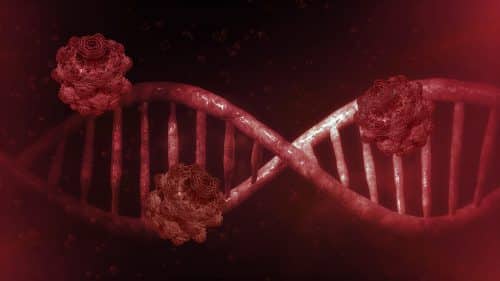DNA sequencing can help us predict who might be vulnerable, and advise them to take precautions. We may be able to use this information against the virus to find a vaccine, say UK genetics researchers

By: Richard Baggs, Professor of Evolutionary Genomics, and Professor Richard Alan Nichols, Professor of Genetics, both from Queen Mary University of London. Translation: Hana Rosenfelder
Scientists need to start sequencing the genomes of corona patients. We must look for differences in DNA between seriously ill patients and those with only mild symptoms. This can help us predict who might be vulnerable, and advise them to take precautions. Maybe we can use this information against the virus to find a vaccine.
It will help us to know especially if there are key variations in DNA common to the minority of patients who are young and as far as known healthy, but have developed severe symptoms of Corona. This might allow us to predict which doctors and nurses are at risk, so that we can move them from the front.
Of course we still don't know if accurate predictions are even possible. We don't even know if a person's chance of getting severe symptoms from corona is affected by their genes. But, we can answer these questions quickly and cheaply if we use common DNA sequencing technology.
We will have to sequence all the genomes of corona patients who needed intensive care, and compare them with the genomes of people with mild symptoms. Since there are only a few thousand people in each category, we will know pretty quickly if there is any benefit to this approach.
Only one or two genes may be involved. Maybe broken genes that are related to the immune system or the outer layer of lung cells.. If so, we can eliminate them quickly using a method called GENOME WIDE ASSOCIATION STUDY. If only a small number of broken genes make all the difference, it will be possible to produce an accurate and cheap genetic test easily.
Thousands of genes may be involved. Perhaps a complex mixture involving the physiology of the lungs, the shape of the upper respiratory system and many other things that we haven't thought about yet. If this is the case, it could take decades to crack the code. But, we need answers within weeks or months.
Here we can use an unexpected source of inspiration: we can use a method called "genomic prediction", a method that has been used successfully for decades among plant and animal breeders, but little used in medicine. The method allows the prediction of complex traits from whole-genome sequences, even when we do not understand what the individual genes do.
This approach removes the need for many years of research trying to understand exactly what is going on. We can construct a score from the whole genome sequence that predicts their vulnerability. We can achieve these scores at a price (in our estimation) of a few hundreds of pounds per person.
Last year, we applied a genomic prediction approach to milla trees, which died from a fungal plague. Comparing the genomes of the healthy trees versus the trees in decaying processes, we located over 3,000 points in the genomes that contributed to their vulnerability. Some were genes with known functions in host defense, but for many others, we had no idea what their role was. But we did not need this information to predict vulnerability of other trees with effective accuracy.
We should conduct similar studies on humans and Corona. Understandably there will be more complex matters of privacy and informed consent than in studies on milla trees. But tens of thousands of human genomes have already been sequenced around the world, and thus issues of privacy and consent have already been examined in the past. For some corona patients, the genome is already recorded in a database.
If we find that accurate predictions can be made, the moral and psychological challenges will be severe. Where should these tests be performed? Will people behave correctly if they are in a risk group (or not)? How will this affect health insurance? But there are serious challenges in every decision we have to make in the fight against the corona.
For an article in The Conversation
We would be happy to help with translations on a voluntary basis. Please contact the website editor Editor@hayadan.org.il
More of the topic in Hayadan:
- The future of humanity in the light of the corona virus: three scenarios
- An analysis of the coronavirus genome reveals that it was created by hybridization between two viruses
- A researcher from the Hebrew University: the new virus has changed its face compared to Sars and will be difficult to neutralize

3 תגובות
http://www.tapuz.co.il/blogs/viewentry/7530992
The article is smart. We don't know much about the virus so it thins the population until a cure for the virus is found.
You should drink water and eat garlic. That's how you beat the viruses. And if that doesn't help, put ice on your head.